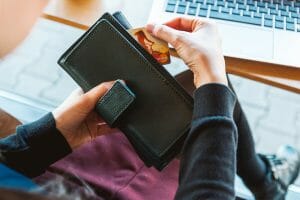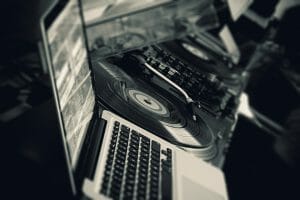Do DJs Have To Pay For Their Music?
In the DJ-ing world, there are lots of aspects one must take into consideration. One of them is staying legal regarding copyright and their use of music. As many DJs do not play their music but mix popular songs into one track, they need to be very careful as not to violate the copyright laws.
 So, do DJs have to pay for their music?
So, do DJs have to pay for their music?
Absolutely. DJs have to purchase the singles, albums, tracks and anything else that they plan to alter and include in their mixes. However, besides this legal purchase, they may or may not need a specific license that allows them to play copyrighted music in front of a large crowd. Several countries impose this law, making DJs pay a fee for this digital license, and others do not, as the location and associations responsible for the even have to pay them instead.
In UK, Canada, Finland, Italy, and several other countries, the law is very specific about the type of payment DJ need to make to acquire the digital license. This fee qualifies them to play, copy and alter tracks from any copyrighted material, including CDs, vinyl, cassettes, digital recordings, and other media. They can also legally copy these to a digital audio player, hard drive, mp3 player, etc… In these countries, DJs must acquire this permission before starting their professional career that implies using copyrighted music for their mixes.
When it comes to the US, DJ’s don’t have to pay for this permit to play the music. Of course, they still need to keep it legal and purchase all the tracks they plan to use, but there’s no need for the digital license. Venues such as restaurants, halls, or clubs, are the ones who pay for the DJ’s rights to play music. There are the so-called Performing Rights Organizations, in short PROs, that act like a middle man between the music producers, songwriters, artist, and the venue that wants to play their music. In the US, such organizations are the ASCAP, BMI, SESAC, etc… After they pay their fees to the music’s respective owners, the venues are now allowed to play it for the crowd. When a DJ works for such a place, they are also automatically allowed to play these tracks without paying any fee.
In other words, DJs in the US are not required to have BMI or ASCAP licenses to perform, as the club or even they are playing at is responsible for paying those fees. However, some venues demand membership fees from the DJs, and one cannot play there unless they pay that fee and are licensed to play the copyrighted material.
 Regarding self-employed DJs, many people are confused into thinking that they fall into the second category. However, even if you’re self-employed, and you make a living off mixing at different events such as weddings, the organizers of the even should have paid the royalties before employing you. You should check with the organizers of the even beforehand to make sure that you won’t be playing the music illegally.
Regarding self-employed DJs, many people are confused into thinking that they fall into the second category. However, even if you’re self-employed, and you make a living off mixing at different events such as weddings, the organizers of the even should have paid the royalties before employing you. You should check with the organizers of the even beforehand to make sure that you won’t be playing the music illegally.
If a DJ in the US plans to play music outside of a licensed venue, they will be held responsible for the royalties and other fees that would otherwise be paid be the venue. In this case, they even risk a lawsuit from BMI and other similar organizations.
To sum it up, yes, DJs do pay for their music in one way or another, however they will usually make it all back pretty easily. All of them have to purchase or download the music they plan to mix legally, and some countries even require them to have a separate digital license that allows them to play copyrighted material for the crowd. In the US, such royalties are the venue’s responsibility, and, in most cases, the DJ doesn’t need to worry about paying for this license.
